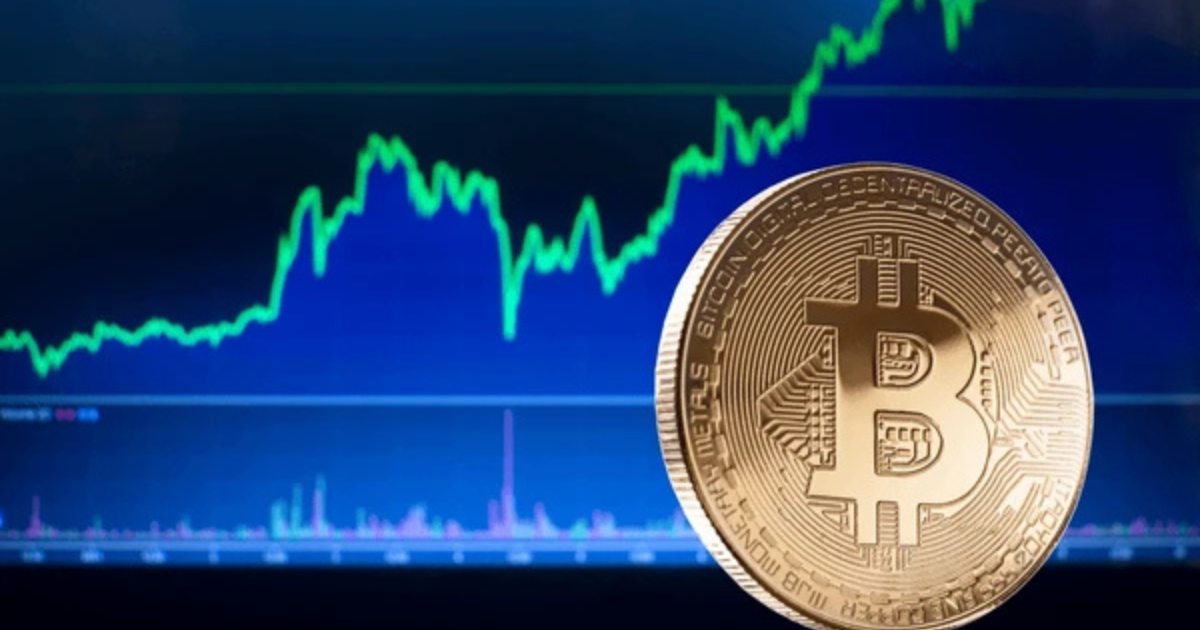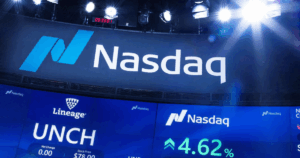On April 23, 2025, Bitcoin price skyrocketed to $94,700, setting a new record since early March. Key factors to determine whether the leading cryptocurrency, Bitcoin, will be able to overcome its resistance of $95,000 are closely monitored by investors. With a recent 11% increase in price over just two days, the market is revitalized.
Key-Takeaways:
- Price growth is coming down primarily from institutionally driven deposits into spot Bitcoin ETFs and decreased Bitcoin exchange deposits. This backs up Bitcoin’s rise to the $95,000 resistance as selling pressure has declined.
- Continued upside is indicated by Bitcoin’s recent breakout above its 200 day SMA as well as negative perpetuality futures funding rates. Once Bitcoin clears the $95,000 mark, Bitcoin investments of $3 billion by the cards could then push the price of Bitcoin to $100,000.
Institutional Demands Driving the Price Growth of Bitcoin
 Resurgence in institutional demand, in particular through spot Bitcoin ETFs, is a huge catalyst to today’s Bitcoin price rally. Since January 2025, these ETFs had the highest net inflows on April 22 and April 23 at $936 million and $917 million, respectively.
Resurgence in institutional demand, in particular through spot Bitcoin ETFs, is a huge catalyst to today’s Bitcoin price rally. Since January 2025, these ETFs had the highest net inflows on April 22 and April 23 at $936 million and $917 million, respectively.
The $94K–$95K zone is clearly the resistance to beat.
🔹A pullback to gain momentum seems like the next logical move, but how far?
The $89K–$90K zone could be next to test bulls, but with BTC’s structure strength, these dips are for buying.
Follow the move with us! pic.twitter.com/VbloG8KEzM
— Swissblock (@swissblock__) April 24, 2025
The amount of institutional capital poured into Bitcoin is substantial and resulting in the sustained upward pressure on the price of Bitcoin. These inflows continue to boost prices by absorbing available supply in the market.
FBTC raised $253.8 million, ARKB brought in $267.1 million and IBIT brought in $192.1 million. The week- long reversal of redemption trend in Grayscale Bitcoin Trust continued with $65.1 million in new investments.
The $1.29 billion two day surge in Bitcoin is an example of new institutional interest for exposure to Bitcoin. Further it fuels the market optimism of Bitcoin price appreciation.
Support for Bitcoin Price by Decreasing Exchange Supply
 According to on-chain data, there is a continued downward trend of Bitcoin exchange inflows, signaling a decreasing number of sellings in the market. CryptoQuant also reports daily coins sent to exchanges down in the past year for a high of 97,940 BTC on Feb. 25 to just 45,000 BTC as of April 23.
According to on-chain data, there is a continued downward trend of Bitcoin exchange inflows, signaling a decreasing number of sellings in the market. CryptoQuant also reports daily coins sent to exchanges down in the past year for a high of 97,940 BTC on Feb. 25 to just 45,000 BTC as of April 23.
Bitcoin has been moving from exchanges out of moving addresses since 2022. Just recently the 30 day moving average dropped to 52,000 BTC, the same as it was in December 2016.
This is also a fourfold reduction in sales of coins over the past three years, which indicates more and more HODL sentiment. Selling pressure has been greatly reduced, which leaves a sound backing for further Bitcoin price advance.
The recent geopolitical developments have also pushed Bitcoin price momentum. The market sentiment changed positively to the US-China trade war pattern following President Trump’s suggestion to ease tariffs.
More than traditional equities, Bitcoin and the cryptocurrency market reacted more strongly. This underlines the vulnerability of Bitcoin to macro uncertainties and the Federal Reserve’s policy changes.
Trump just ticked most de-escalation/bullish boxes.
(headlines from the last 45 minutes)
TRUMP: DOING WELL WITH CHINA, NEARLY EVERY COUNTRY
TRUMP: GETTING THE BASELINE OF 10%
TRUMP: I WILL NOT BRING UP CORONAVIRUS WITH CHINA
TRUMP: IF THEY DON’T MAKE A DEAL, WE’LL SET THE…
— Alex Krüger (@krugermacro) April 22, 2025
Another factor driving the increase in Bitcoin price is news of strategic institutional balance sheet demand for Bitcoin. A significant turn of the key financial players is now underway.
A new entity called 21 Capital in which Cantor Fitzgerald, SoftBank, Tether and Bitfinex are set to fund a consortium led by the latter are aiming to raise between $250 million and $300 million, reports show. Their plan is to seed it with close to $3 billion in Bitcoin and Tether is pouring in $1.5 billion, SoftBank $900 million and Bitfinex adding a cool $600 million.=
Main Indicators Pointing to a Bitcoin Price Appreciation Further
 From a technical point of view, several hints can be seen that Bitcoin price can keep climbing. Bitcoin recently pushed above the $88,690 region, which is a historically important support level on its 200-day simple moving average.
From a technical point of view, several hints can be seen that Bitcoin price can keep climbing. Bitcoin recently pushed above the $88,690 region, which is a historically important support level on its 200-day simple moving average.
This key technical metric hasn’t been crossed by Bitcoin since the last time it fueled a major rally. Similar breakout happened with Bitcoin price between October and December 2024, where the stock rose 80%.
Despite Bitcoin price increasing by 11% April 22-23, perpetual futures funding rates stayed negative which means that shorts are paying longs. Usually, this results in a short squeeze, which further compounds the price gains.
In the past, such identical voids between price movements and funding rates have signalled significant rallies. Bitcoin’s history of going from $28,000 to $73,000 in October 2023 and from $57,000 to $108,000 in September 2024 are past examples.
To keep the Bitcoin price rising, it has to clearly break the $95,000 resistance. A move toward $100,000 and maybe even to an even higher point above $109,000 becomes more probable with the situation that it has if it succeeds.
If Bitcoin cannot maintain momentum, key support to watch out for is the 200-day SMA at $88,690, the 50-day SMA at $84,379, as well as the psychological $80,000 level.
Conclusion
In the following weeks, Bitcoin price movements will be affected by the interplay of these institutional, on-chain, geopolitical, and technical factors and whether the cryptocurrency can finally break the critical $95,000 resistance barrier. Will Bitcoin see the barrier at $95,000 successfully broken?











